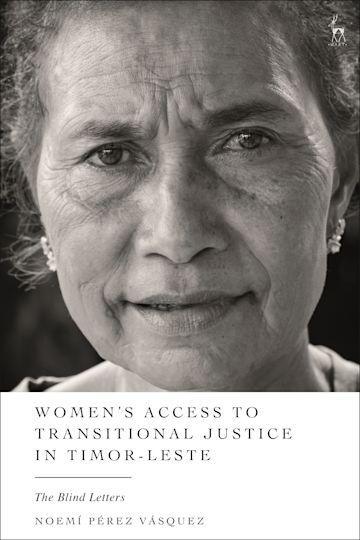Book Launch: Women's Access to Transitional Justice in Timor-Leste
Notes & Changes
This event will run in a hybrid format. If you would like to attend in person, join us at Seminar Room F at the Faculty of Law, University of Oxford (St Cross Building, St Cross Road, OX1 3UL, Oxford). If you would like to attend online, please register here.

By raising women's experiences in dealing with the law and policies as well as the implications of community and family practices during post-conflict situations, 'Women's Access to Transitional Justice in Timor-Leste' shows how these mechanisms may have been implemented mechanically, without considering the different intersections of discrimination, the public and private divides that exist in the local context or the stereotypes and values of international and national actors. The book argues that without unpacking the barriers in the administration of transitional justice, the different mechanisms that are implemented in a post-conflict situation may set a higher threshold for the participation of women. Moreover, by taking into account women's perceptions of justice, it further argues that scholars have paid insufficient attention to the welfare structures that are produced after a conflict, particularly the pensions of veterans. Going beyond the focus on sexual violence, a relationship between the violations and post-conflict economic justice may have longer-term consequences for women since it perpetuates their inequality and lack of recognition in times of peace. The use of transitional justice may thus exacerbate the invisibility of and discrimination against certain sections of the population. Inspired by the work of Hannah Arendt and based on extensive field research in Timor-Leste, the book has larger implications for the overarching debate on the social consequences of transitional justice.
Author
Dr Noemi Perez Vasquez is a Venezuelan national, whose work falls within the intersections between law and politics. She has worked mainly with the United Nations on issues of the justice sector, human rights, women and children, including for the OHCHR, UNDP, UNMISS, UNICEF as well as for the the International Bar Association’s Human Rights Institute (IBAHRI). She was a Visiting Researcher at the Universidade Nacional Timor Lorosa’e, in Dili, Timor-Leste from 2016 to 2017, where she carried out her fieldwork. She holds a PhD from SOAS, University of London and is currently working as a Legal Officer for the UN OHCHR in Colombia.
Discussant
Diego Dewar is a Mexican Diplomat, who has worked in the Ministry of Foreign Affairs of Mexico for over a decade, posted in the Mexico Mission to the UN and the Embassy in Poland. Diego previously worked as an advisor for interagency affairs in the New York office of the UN Environment Programme. He is interested in international organisations, especially the explanations behind their reform or lack thereof, as well as how they coordinate on the ground to support countries in the achievement of sustainable development. Diego holds an MA in Conflict, Security and Development from King’s College London and completed his BA in International Relations at El Colegio de México. He was also a Fox International Fellow at Yale University. He is currently pursuing a DPhil in Public Policy from the University of Oxford.

